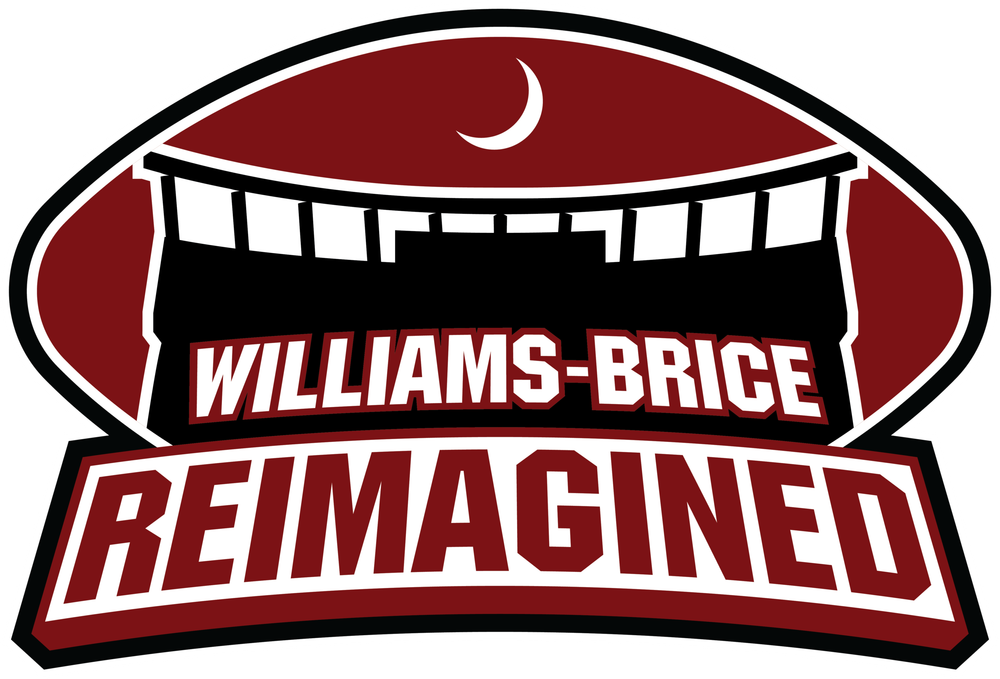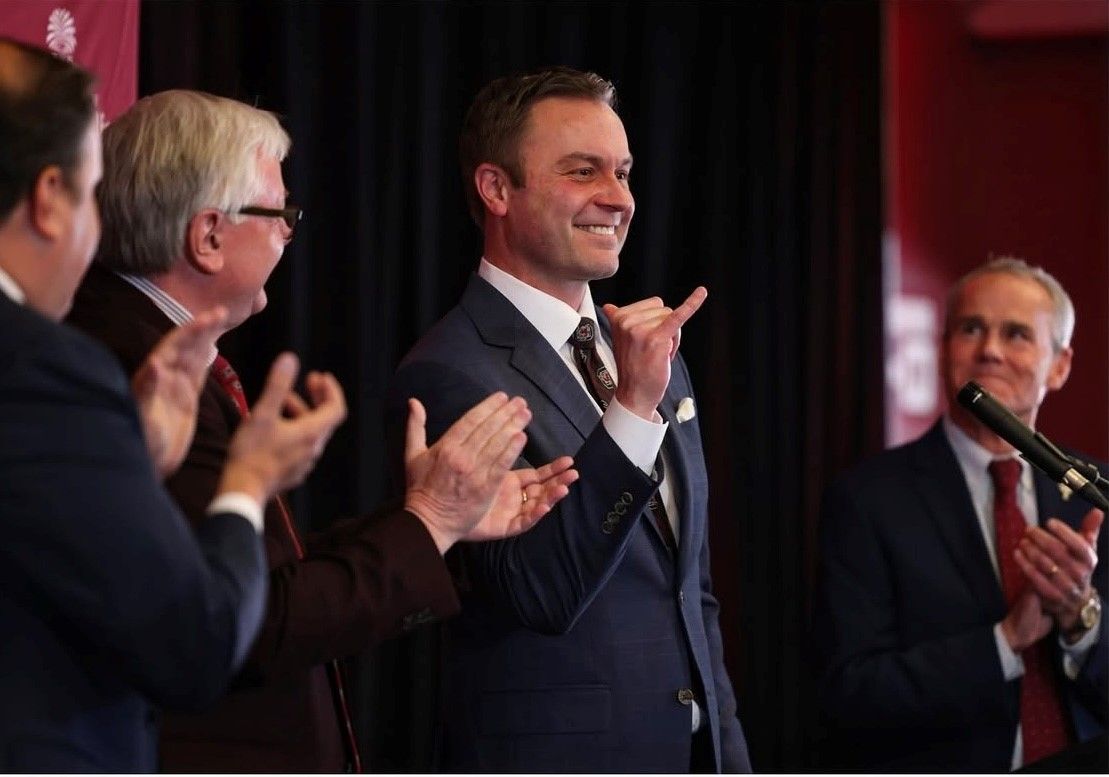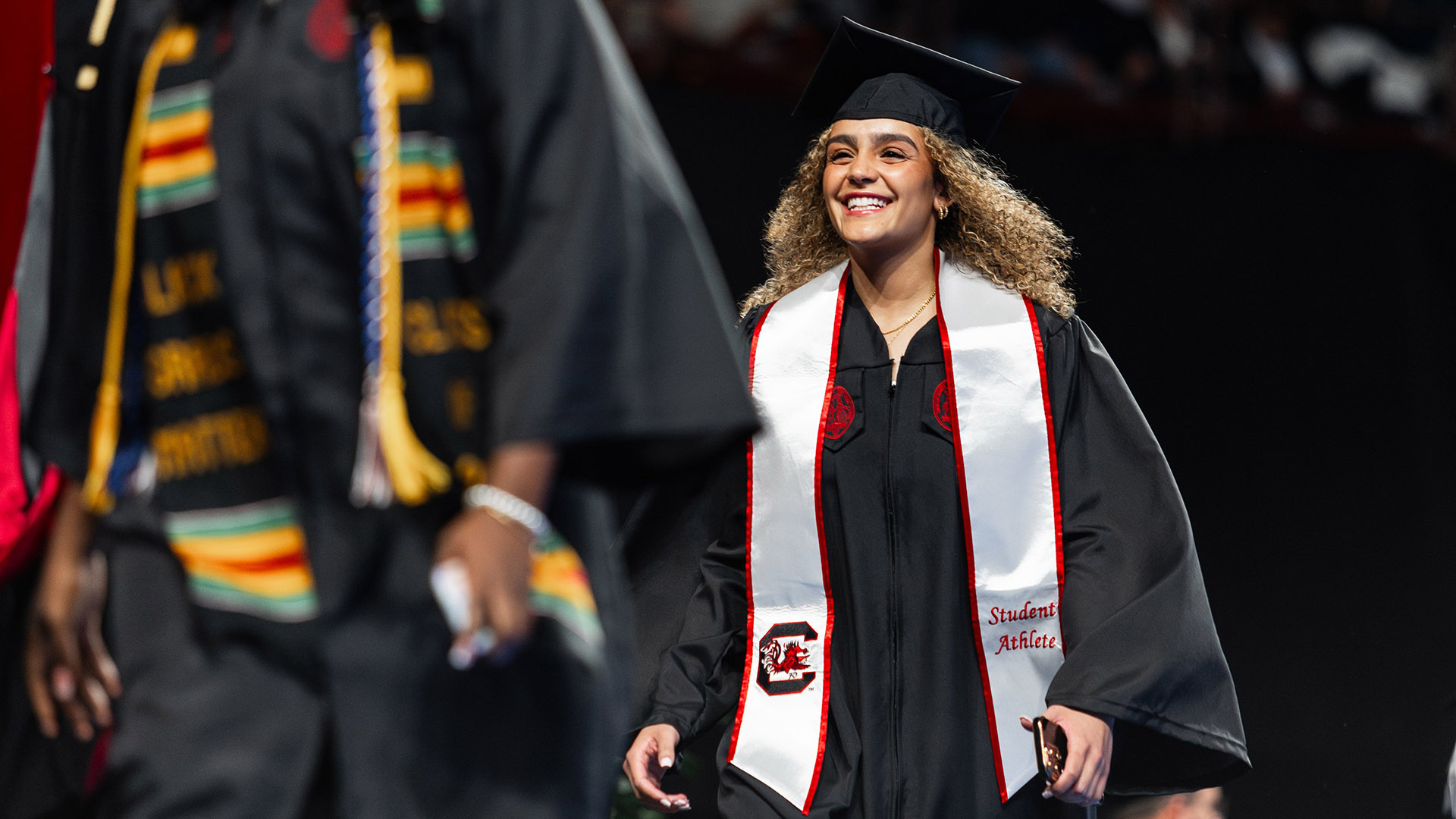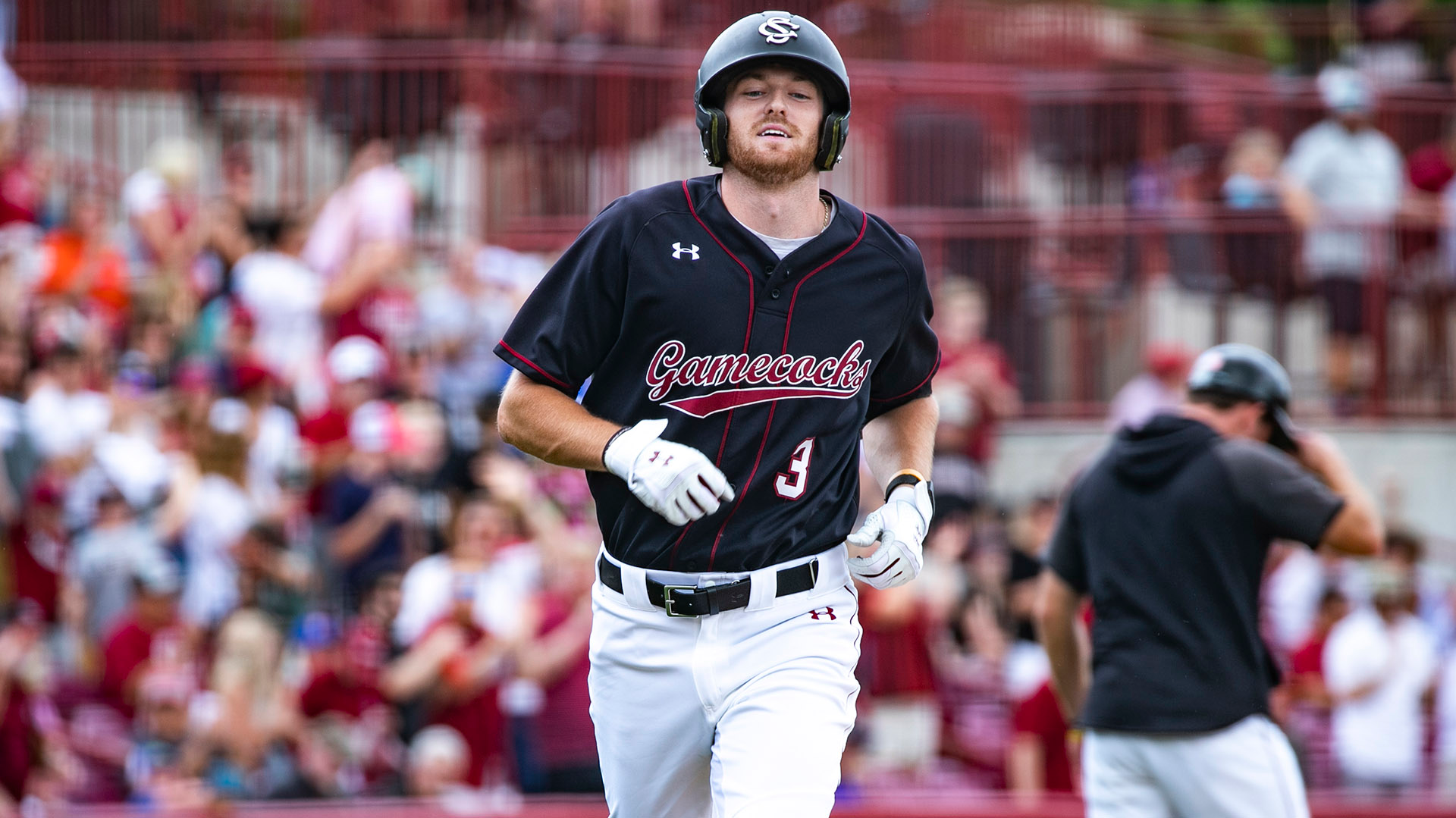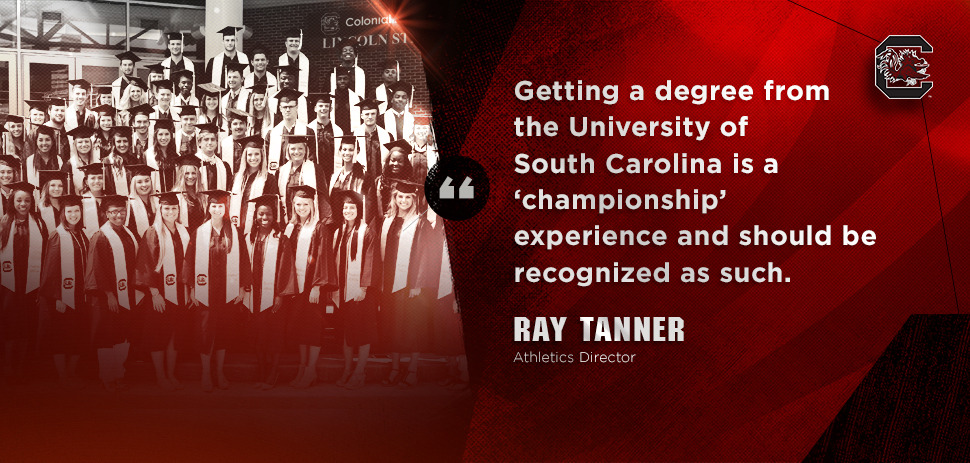
Graduation is a Championship Experience for Student-Athletes
May 6, 2016

South Carolina student-athletes are all about getting to the next level, but not just in sports. Student-athletes have a short window to compete in intercollegiate athletics, and it’s a fact that most won’t play professionally in their sport after college. However, that doesn’t mean they won’t be competing.
“The student-athlete experience is about competition,” Athletics Director Ray Tanner said. “Not just against the person on the other team, but to be the best that you can be. Whether it’s in the classroom, in the community, being a teammate or friend, son or daughter, it’s doing it to the best of your ability. Graduation signifies a victory that’s been many years in the making, from elementary school to college. Getting a degree from the University of South Carolina is a `championship’ experience and should be recognized as such.”

“Graduating meant that I took advantage of the opportunity to be debt free by receiving a degree from one of the most respected business schools in the nation,” said former football student-athlete Moe Brown (2006-2009), who is now Project Manager in Global Business Development at the South Carolina Department of Commerce. “It also added validation of the work that I put in, on and off the field. There were many times where I doubted that I would make it, but somehow I always found a way to push through. I am all the better for it.”
As part of the Gamecock Student-Athlete Promise, South Carolina Athletics ensures a commitment to academic excellence as well as personal and career development in addition to a commitment to athletics excellence. There are several key components to that championship experience, including:
• Ensuring that student-athletes have access to the best resources to achieve in their sport
• Ensuring that student-athletes have the proper support to help them succeed academically
• Prepare student-athletes to succeed outside the world of competitive athletics
• Show the value of their degree by finding employment in their chosen field
In the previous three years, 217 Gamecock student-athletes have earned their degrees, and 78 more are earning their diplomas this weekend with every varsity sport represented. Everyone involved in intercollegiate athletics wants to win on the field or on the court, but we also win when our student-athletes graduate and get jobs. Of course getting a degree requires a lot of hard work, in addition to the work that has to be done to be successful in their respective sport.
“The discipline that it takes to play football while studying finance and marketing has played a major role in my success after football,” Brown said. “Additionally, the ability to deal with adverse situations, like dropping a touchdown pass, and bounce back has given me the confidence that I can handle any challenge that is thrown my way.”
South Carolina led the SEC for the 10th consecutive fall this past year with the most student-athletes on the Fall SEC Academic Honor Roll, and 75 more were listed on the 2015-2016 Winter SEC Academic Honor Roll.
After graduating this month, Beach Volleyball senior Litsa Darby already has a job lined up with the NFL’s Houston Texans, working in the corporate development office after interning there last summer.
“Being a student-athlete really challenged me with time management and handling relationships inside and outside the classroom,” Darby said. “It has definitely opened doors for me that I might not have had. Being the president of the Student-Athlete Advisory Committee (SAAC), working on various community service projects, and all of those experiences are something I know I will use in my next journey with my new job.”
“I was so fortunate to find a job right out of college because not a lot of students do,” said former softball student-athlete and 2015 graduate Kristen Struett, who spent the last year working with the non-profit Reviving Baseball in Inner Cities (RBI) in the Los Angeles Angels of Anaheim organization. “I firmly believe that playing softball and studying at the University of South Carolina helped shape me into the person that I am today. It taught me a lot about professionalism, time management, and multi-tasking that I could use in the workplace.”
I think the staff and the coaches at South Carolina care so much about growing the athletes as people … They help you with the skill sets you need to succeed in whatever you want to do in life.
Kristen Struett, Softball 2012-2015
Even those who have not yet earned their degree are seeing the value placed on each sport for what happens on and off the field. Such is the case with junior women’s soccer student-athlete Claire Studebaker, who recently met with members of the athletics administration to thank them for the construction of the new soccer locker room, weight room, and training facility at Stone Stadium.
“The attention to detail and the focus they put on all of the sports here is something you just don’t see at a lot of other schools,” Studebaker said. “I talk to friends who play elsewhere in the SEC and the ACC, and they just don’t get all of the things that we do. The administration here does such a good job of paying attention to sports other than just football. We’re not going to bring in the same revenue, but Ray Tanner and the administration make us feel like our sport still matters, and that we are important to the athletics program here.”
That attention to detail is found outside of the playing arenas as well, as the academic staff within the Dodie Academic Enrichment Center is vigilant in providing resources to help student-athletes succeed in the classroom as well as with various life skills and educational opportunities outside of the classroom.
“Playing professionally isn’t in the books for most of us,” Studebaker said. “The support that we have in everything from the Dodie and tutoring and everyday things like that are great. They teach us how to write a resume, how to dress for job interviews, proper etiquette, and provide seminars that other people would love the opportunity to have. They really go out of their way to show us how to succeed in the classroom and beyond that so that we can get a job after we graduate. They provide plenty of opportunities to get internships, study abroad, and they have plenty of great contacts to talk to people all over the place. They make it difficult for you not to succeed.”
“I think the staff and the coaches at South Carolina care so much about growing the athletes as people, and not just push them through with grades just good enough to get by,” Struett said. “They help you with the skill sets you need to succeed in whatever you want to do in life. Everyone is interested in every major and every place you want to go after you graduate. Our life skills programs were awesome, and so were all of our networking events. They helped me how to be confident in interviews, how to write a resume and the etiquette dinner taught me how to handle myself with big executives.”

“I do believe that the coaches, and especially our academic advisor, were very serious about me obtaining my degree,” Brown added. “(Former Associate Athletics Director for Academics and Student Support) Raymond Harrison set the standard that the same accountability that was shown of the football field would hold true in the classroom.”
While most student-athletes won’t enjoy a professional playing career in their chosen sport, those that do have the opportunity to play at the next level are still a priority. The Degree Completion Program, which is part of the Gamecock Student-Athlete Promise, allows not only those who left school before they graduated to play pro sports, but also those who left for personal reasons, a chance to come back to earn their diploma from the university. After graduation ceremonies this month, 28 former student-athletes will have earned their degrees through the program since it began six years ago, including Fred Bennett (football), Marcus Lattimore (football) and Matt Price (baseball), who are walking this weekend.
“It means a lot to me,” said Bennett, who is still playing professionally in the Canadian Football League. “It’s all about doing the work in the classroom. It’s a great honor. Getting my degree is something I’ve always looked forward to doing. If something happens to me, now I have something to fall back on.
“(Senior Associate Athletics Director for Academics and Student Development) Maria Hickman and the academic staff, they really helped me. I just want to encourage all former student-athletes who didn’t graduate to come back and finish. It’s a good feeling. It’s something personal to me, and nobody can take it away from you. I want to use my degree in the hospitality field. I also want to get into coaching, but using my degree to work in the hospitality industry is something that I will do.”
Whether it is through former Gamecocks mentoring current student-athletes, sacrificing a day on the field in order to set up their future like senior softball student-athlete Ansley Ard did this spring, or using an internship opportunity to sell oneself for future employment as in the case of Litsa Darby, making the `cut’ in the professional world is the expectation from all parties involved. In the end, South Carolina is not only graduating tremendous student-athletes, but individuals whose experiences make them desirable in the workforce.
“Student-athletes are attractive to employers due to the fact that we essentially work two full time jobs while we are in college,” Brown said. “There is also no doubt that student-athletes know how to be on time, take constructive criticism, work well with others, and generally are good leaders. All these characteristics are what most employers want to see from their employees.”
“As student-athletes, we’ve had experiences where we’ve been under pressure in competing, and when you get out in the real world you’re going to be competing and under pressure as well,” Darby said. “I took six classes last semester while I was in-season, and I was able to keep a 4.0 grade point average. I think that sort of thing will help me in the work force.”
Some may think that intercollegiate athletics is all about championships. If you apply Tanner’s definition of graduation as a championship experience, then you’ll get no argument from us. This is why we are here.


